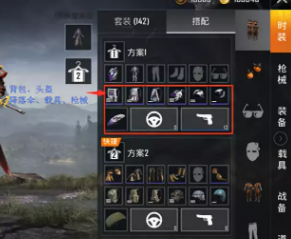cryptocurrency network
The US dollar index continued to rise, and non-US currencies generally fell. The US dollar index continued to rise, rising by 0.4% to 106.6 in the day. Non-US currencies generally declined, and GBP/USD of the pound against the US dollar now fell by 0.19% to 1.2726; The euro fell 0.5% against the US dollar EUR/USD to 1.0500 in a day; The USD/JPY broke the 152 mark against the Japanese yen, rising by about 0.4% in the day.Latvian Foreign Minister Blase said that we will cooperate with anyone appointed by Trump.The British Chancellor of the Exchequer called on the EU to grant greater access to the City of London. The British Chancellor of the Exchequer Rachel Reeves visited Brussels, urged the EU to grant greater access to the City of London, and told the finance ministers of the group that this would help promote their stagnant economic growth. Reeves said: "Britain has a deep global capital market, which can fund the growth needed by the economies in continental Europe."
OPEC Secretary-General Haitham al Ghais was re-elected. The next regular meeting of OPEC will be held on May 28th, 2025.USD/JPY stood at 152 for the first time since the end of November, rising by 0.41% in the day.Bank for International Settlements: Swap spreads are reflecting investors' concerns about excessive bond supply. The Bank for International Settlements (BIS) pointed out that huge government loans are having an impact on the global interest rate market, saying that investors have demanded higher premiums for buying sovereign bonds. In its quarterly report released on Tuesday, the agency pointed out that the swap spreads of various currencies and maturities have narrowed rapidly in recent months, which are "signs of possible oversupply". As investors are worried about huge debt and deficit expansion, the yields of government bonds in the euro zone and Japan have recently exceeded comparable swap rates. This leads to the so-called swap spread becoming negative. Because national debt is usually regarded as a safer investment than interest rate swap, it is unusual for the swap spread to enter the negative range. According to the Bank for International Settlements, the negative swap spread seems to reflect the pressure faced by investors and intermediaries because they need to absorb more government bonds in the near future. In the United States, the swap spreads for some maturities have been negative for many years.
The main contract of alumina fell more than 2.00% in the day, and it is now reported at 5130 yuan/ton.Kaitou Macro: Trump's influence on oil and gas may come from foreign policy. Kaitou macro economists said that President-elect Trump may influence the global oil and gas supply through foreign policy rather than domestic production or trade tariffs. "We doubt whether tariffs affecting the oil industry will be effective, and the impact will be limited in the short term," economists said. "At the same time, the decision to increase production will ultimately depend on private producers who have been strictly observing capital discipline since the outbreak." In terms of climate policy, Kaitou Macro said that the biggest threat will be to cancel the tax credit for electric vehicle buyers, which will put the promotion of this car in the United States at risk of further slowdown.The chief financial officer of Goldman Sachs expressed his intention to promote increased investment in technology, especially artificial intelligence.
Strategy guide 12-14
Strategy guide
12-14
Strategy guide 12-14
Strategy guide
12-14
Strategy guide 12-14





























